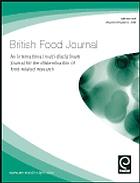Purpose – Potato is a major food staple in Africa, but its production is constrained by poor quality of seed. A recent private–public partnership in Tanzania resulted in introduction of new higher yielding varieties. The purpose of this paper is to examine smallholder farmers’ motivations to invest in the purchase of quality seed of new potato varieties, and if the motivational structure differs by gender. Design/methodology/approach – The paper used means-end chain (MEC) theory combined with goal priming, and laddering interviews on randomly sampled participants (n ¼ 45) of an experimental auction conducted among smallholder farmers in Tanzania. The auction was designed to goal-prime respondents on benefits of quality seed. The mental constructs obtained were grouped into attributes, consequences and values, and MECAnalyst software used to generate hierarchical value maps. Findings – Farmers invest in quality seed of a new variety to increase yields, hence income, and also to pursue personal life goals (values) or meet psychosocial needs. The structure of mental constructs associated with the decision to invest in quality seed of a new variety differ by gender.
Combining means-end chain analysis and goal-priming to analyze Tanzanian farmers’ motivations to invest in quality seed of new potato varieties
Citation: Okello, J.J.; Lagerkvist, C.J.; Kakuhenzire, R.; Parker, M.; Schulte-Geldermann, E. 2018. Combining means-end chain analysis and goal-priming to analyze Tanzanian farmers’ motivations to invest in quality seed of new potato varieties. British Food Journal. ISSN 0007-070X 120: 7. p.1430-1445
2018-08-27
GENDER, POTATO AGRI-FOOD SYSTEMS, POTATOES, SEED SYSTEMS
AFRICA, Eastern Africa
TANZANIA
journal_article

